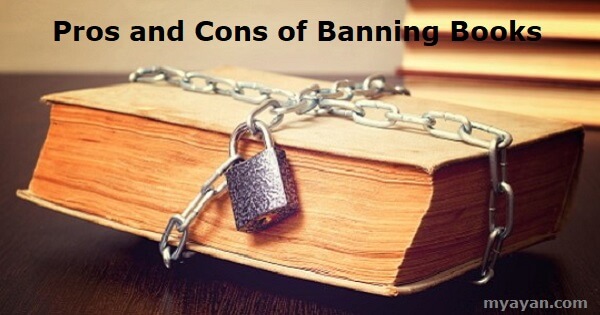When a book is banned, a certain group or individual finds it unpleasant or unsuitable and wants it removed from libraries, schools, or retailers. A book may be banned for various reasons, but usually, ones include supporting unpopular or controversial views or using objectionable language, violence, or sexually explicit material. The First Amendment of the United States Constitution, which protects the right to free speech and expression, is broken by banning books. Despite this, many locations worldwide exist where books are prohibited or contested.
The argument put out by opponents of book banning is that it is a kind of censorship that restricts access to knowledge and ideas. They contend that people must be free to read and form their opinions on the content. They contend that prohibiting books can harm a free and open society by preventing a range of viewpoints and ideas.
On the other hand, supporters of book banning contend that some books contain inappropriate or damaging content that shouldn't be available to the broader public. They contend that some books may harm kids and teenagers and that parents and teachers should be able to determine what literature is acceptable for them to read.
The benefits of banning books include preventing children and teenagers from being exposed to objectionable or dangerous materials like violence, sexual content, or hate speech.
By halting the circulation of ideas considered harmful to society, book banning can contribute to the preservation of social or moral norms.
Book restrictions can shield particular people or groups from exclusion or disrespect. Books that are objectionable or harmful to specific groups, such as children, should be banned to protect vulnerable people from exposure to such material.
Banning publications that encourage immoral or unethical behavior can help preserve public morals and stop the spread of unfavorable ideas.
Books that encourage discrimination or hate speech should be banned to protect vulnerable groups and stop the spread of violent ideology.
Book banning is a kind of censorship that restricts access to knowledge and ideas and can restrict free speech and critical analysis.
Banning books frequently fail to consider the historical or cultural context in which they were written, which can lead to the eradication of priceless writings and significant debates.
This is for the world might result from a lack of diversity in opinions and ideas caused by book bans.
It is possible to compare banning books to censorship, which is the suppression of ideas and viewpoints judged unacceptable. It may result in a lack of variation in ideas and a restricted understanding of other perspectives.
Preventing students from being exposed to various ideas and views is one way that banning books may restrict education. It may impair the development of critical thinking and the mind.
The First Amendment of the United States Constitution, which protects the right to free speech and expression, is violated by banning books. Banning books violates free speech and might restrict one's ability to think critically. Even if a concept is controversial or unpopular, people should be free to study and research it.
Conclusion
In conclusion, the issue of book banning is complicated since it requires weighing the necessity to protect particular groups from offensive content with the freedom of speech and the desire to learn. While it may appear that banning books is a method to protect vulnerable communities and maintain morality in society, doing so actually reduces the variety of ideas and viewpoints and can inhibit the development of critical thinking and intellectual curiosity. Open discourse and discussion should be encouraged rather than restricted to facilitate the free interchange of ideas and promote intellectual development and understanding.

The rights of other readers are impacted when books are banned. When parents restrict their kids from reading a specific book, they cannot impose their views on other kids and families. Young learners may have knowledge gaps if books are banned.
The content was considered sexually explicit, it included offensive language, and it was unsuitable for any age range.
But, you may learn about those circumstances via the words of authors who may not look or think precisely like you. Banned and challenged books may include more uncomfortable or alien experiences than you're used to.